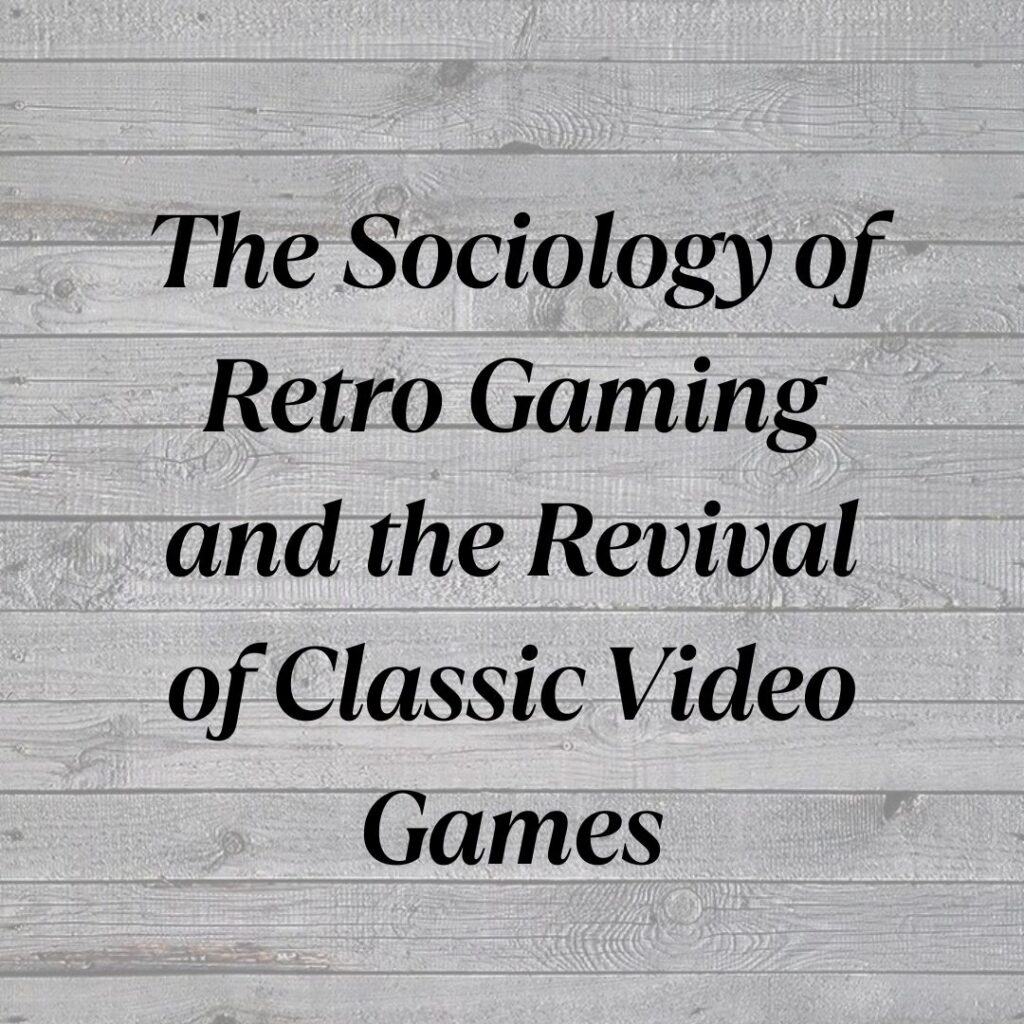In the world of gaming, nostalgia is a powerful force. It’s what drives millions of gamers to revisit the classics they grew up with, whether it’s Pac-Man gobbling dots in a maze, Mario jumping over barrels to save Princess Peach, or Sonic the Hedgehog speeding through loop-de-loops. The phenomenon of retro gaming goes beyond mere entertainment; it taps into deep-seated emotions and social dynamics that shape our modern gaming culture.
Nostalgia and Social Identity
Retro gaming isn’t just about playing old games; it’s about reliving memories and connecting with one’s personal history. For many gamers, the games they played in their youth form a significant part of their identity. This nostalgia isn’t confined to individuals; it’s a collective sentiment shared by entire generations.
For instance, the resurgence of interest in 8-bit and 16-bit era games like those on the Nintendo Entertainment System (NES) or Sega Genesis isn’t just about the games themselves—it’s about the cultural touchstones they represent. These games evoke memories of simpler times, when gaming was less about graphics and more about gameplay and storytelling.
Community and Retro Gaming
One of the most striking aspects of retro gaming is its ability to foster communities. Online forums, social media groups, and conventions dedicated to retro gaming are thriving hubs where enthusiasts gather to discuss, reminisce, and celebrate their favorite games. These communities provide a sense of belonging and camaraderie, where individuals can connect over shared experiences and passions.
Take, for example, the annual “Classic Gaming Expo” where thousands of retro gaming fans converge to celebrate the games of yesteryear. Events like these not only showcase classic games but also feature discussions on the impact of retro gaming on culture and society.
Technological Advancements and Accessibility
Advancements in technology have played a pivotal role in the revival of retro gaming. Emulators, which mimic the hardware of old consoles on modern devices, allow gamers to play classic titles without needing the original hardware. Platforms like the Nintendo Switch Online service offer subscribers access to a library of classic NES and Super NES games, further bridging the gap between past and present gaming experiences.
Moreover, the rise of retro-themed consoles, such as the NES Classic Edition and the Sega Genesis Mini, has made it easier for new generations of gamers to discover and appreciate classic titles. These mini consoles not only reproduce the look and feel of the originals but also introduce these games to audiences who may never have experienced them before.
Cultural Impact and Reinterpretation
Retro gaming isn’t just a nostalgic trip down memory lane—it’s also a source of inspiration for modern game developers. Many contemporary games pay homage to classic gameplay mechanics, art styles, and themes. For instance, indie games like “Shovel Knight” draw heavily from the 8-bit era, combining modern game design sensibilities with retro aesthetics to create something both familiar and innovative.
Moreover, popular franchises like “The Legend of Zelda” and “Final Fantasy” often revisit their roots, releasing remastered versions or incorporating elements from their early iterations. This trend underscores the enduring influence of classic games on the broader gaming landscape.
Economic and Market Dynamics
From a market perspective, retro gaming has become big business. The demand for retro games, consoles, and memorabilia has led to a thriving secondary market where collectors and enthusiasts buy, sell, and trade vintage gaming items. Rare games and limited-edition consoles can fetch significant sums at auctions or online marketplaces, highlighting the enduring financial value of retro gaming.
Additionally, the popularity of retro gaming has spurred the growth of retro game stores, both physical and online, that specialize in selling classic games and consoles. These stores not only cater to collectors but also serve as community hubs where gamers can connect and share their passion for retro gaming.
Conclusion
In conclusion, the sociology of retro gaming reveals a complex tapestry of nostalgia, community, technology, and cultural reinterpretation. Retro gaming isn’t just about playing old games; it’s about preserving and celebrating gaming history, forging connections between generations, and influencing the evolution of gaming culture. As technology continues to evolve and new generations of gamers discover the joys of classic titles, the phenomenon of retro gaming will likely remain a vibrant and integral part of the gaming landscape for years to come.
Whether you’re a seasoned gamer reminiscing about your favorite childhood games or a newcomer exploring the roots of modern gaming, the allure of retro gaming offers something timeless and universal—an opportunity to experience the magic of gaming history firsthand. So dust off that old console, load up a classic game, and embark on a journey through time—a journey where pixels and nostalgia collide to create unforgettable gaming experiences.






